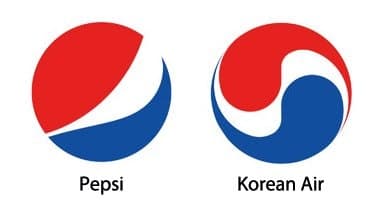
If you’re new to business ownership or just starting to think seriously about your brand, one of the most common (and confusing) questions you’ll run into is: What’s the difference between a brand name and a legal name? And do they have to be the same? Short answer: No, they don’t.
Understanding the Brand vs. Legal Names
Your legal name is the official name of your business, the one registered with the government. If you form an LLC or corporation, this is the name that appears on tax forms, contracts, and legal documents. It typically includes designations like “Inc.” or “LLC.” (If you haven’t registered your trademark, check out my article on that!)
Your brand name or trade name, on the other hand, is what customers know you as. It’s the name you use for marketing, signage, packaging, and everyday business interactions. Think of it as the public face of your business—it’s how people recognize you, refer you, and search for you online.
Why Brand and Legal Names Matter?
In my years working in acquisition integration—sometimes handling multiple company mergers in a single year—this distinction has come up a lot. Whether you’re acquiring a company or just launching your first business, knowing how to manage your these can save you time, money, and confusion.
Here’s why understanding the difference is so important:
- Flexibility in Marketing – Your legal name doesn’t have to be your brand name. You might legally be “Starfish Innovations Inc,” but your logo, website, and signage can simply say “Starfish.”
- Simplified Customer Experience – Customers don’t need to see formalities like “Inc.” or “LLC” in your marketing materials. Keeping it simple makes your brand more memorable and approachable.
- Easier Legal and Financial Processes – Changing a legal name is a complex process that involves paperwork, government filings, and financial record updates. Keeping the legal name stable while evolving the brand allows for smoother transitions.
What Is a DBA (Doing Business As)?
A DBA (Doing Business As) allows you to operate under a brand name that’s different from your legal name. This means you can maintain a professional legal entity while still marketing yourself under a more consumer-friendly brand name.
Example #1:
- Legal Name: Joe Smith IT Consulting LLC
- DBA/Trade Name: Sunset Technologies
Example #2:
- Legal Name: Sunny’s Dog Grooming LLC
- DBA/Trade Name: Sunny’s Dog Grooming
With a DBA in place, you can use your brand name on marketing materials, while your legal documents, contracts, and tax forms remain under the official legal name.
Key Takeaways for Small Businesses
- Your brand name and legal name don’t have to match. Your name should be simple, memorable, and customer-friendly.
- You don’t need “Inc.” or “LLC” in your logo. Those designations are for legal and financial documents, not branding.
- A DBA allows for marketing flexibility. If you want to use a different name publicly, filing a DBA is a simple way to make it official.
- Keeping your legal name stable can save you headaches. Instead of going through the process of changing a legal name, many businesses opt to adjust only the brand name when rebranding or evolving their image.
Whether you’re acquiring a company, merging multiple businesses, or just getting started, understanding the difference between a legal name and a brand name will help you make smarter branding decisions. At the end of the day, your brand is how customers connect with you—so make it work for them!
Additional Resources:


